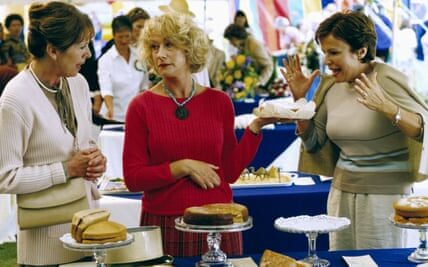Review of Magogodi oaMphela Makhene’s debut novel “Innards” – a remarkable literary achievement from Soweto.

O
The front cover of Magogodi oaMphela Makhene’s debut collection of interconnected stories, which explore life during and after apartheid in South Africa, features a young Black girl dressed in a collared dress. In each hand, she holds a chicken that appears to be plucked and gutted. Upon closer examination, one can see that the girl has horns on her forehead and a stream of blood running down her left leg. Her gaze is fixed ahead, conveying a sense of resignation, pain, or provocation. Makhene’s book, much like the oil painting by Zimbabwean artist Kudzanai-Violet Hwami, combines the ordinary and extraordinary, depicting grief, resilience, and horror in unique and captivating ways.
The majority of the stories take place in Soweto and follow characters as they navigate through complex emotions of anger, disappointment, shame, guilt, and betrayal in the aftermath of personal and collective trauma. In “Indians Can’t Fly,” Krishna is subjected to torture at the notorious John Vorster Square detention center when she refuses to give information about her husband, a freedom fighter who has disappeared. After her release, she searches for her husband but discovers he may have become an informant for the authorities. This gossip is mentioned again in the central story, “Innards,” and we finally meet her husband as a character in “Dr Basters,” a darkly comedic tale that reveals how he reinvented himself after apartheid.
At 7678B Old Potchefstroom Road, there is a complicated situation when Ethel is reunited with her brother Kingsley due to the laws in place. Kingsley, who comes from Transkei, one of the designated “homelands” or “Bantustans” for the Xhosa people during apartheid, has to hide in the coal bin during “dompass” raids at night. He is unable to find work because he does not have a white man to sign his papers, making him a “Prohibited Alien” subject to deportation. Later, when Ethel’s husband passes away, her own papers are not enough to prevent her from being sent back to Transkei. As soldiers ransack her house and throw out all her furniture, it becomes clear that her husband’s papers were insufficient in protecting her.
Several heartbreaking stories revolve around children. In the book Star-Coloured Tears, a young boy comes back home from a fishing trip with his friends and discovers that his mother, an anti-apartheid activist, has been taken away by the police. In The Caretaker, a mother and her children are forced to watch their dog being killed by a Boer policeman. In Black Christmas, an 11-year-old schoolgirl stops speaking after witnessing a Black man being burned alive for his suspected involvement with apartheid forces. The story also explores the struggles of the girl’s education under the Bantu Education Act, highlighting how apartheid aimed to instill a life of submission and manual labor for Black South Africans.
Makhene skillfully weaves together history and narrative in her chilling tales. She strategically integrates political commentary through bits of conversation, events, and descriptions, requiring readers to actively interpret her subtle hints and allusions. Her stories are drenched in the languages of Soweto (isiZulu, Sesotho, Sepedi, Setswana, Afrikaans) and peppered with significant details, names, dates, and local political knowledge, making them appear as a test for the unfamiliar reader. In the style of Toni Morrison, she challenges readers to fully immerse themselves in the world and perspectives of her characters.
The main character in the title story experiences painful memories from his past following the news of his father’s passing. Living in Berlin, he reflects on the humiliation his father endured as the police paraded him naked through the streets when he was a child. He also vividly recalls the raids where male relatives were rounded up and violently forced from their homes. His sister, who now resides in New York, is tormented by the gruesome image of Steve Biko’s mutilated body. She had attended his funeral and remembers seeing his sunken eyes and broken bones. Reading Makhene’s work forces one to confront the ongoing pain and trauma of apartheid. The characters’ enduring suffering and haunting memories of violence are deeply and intimately explored, making this an exceptional accomplishment.
Source: theguardian.com
